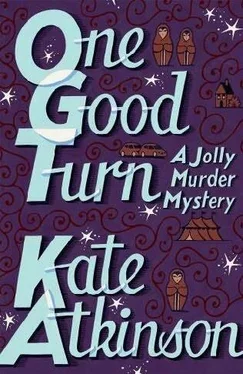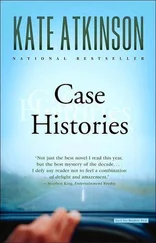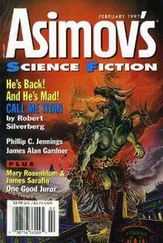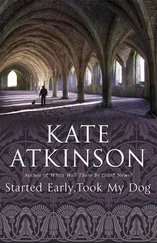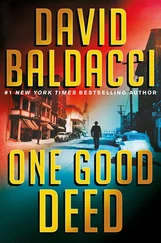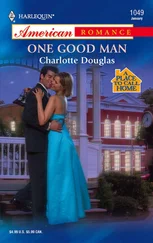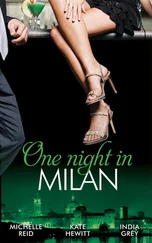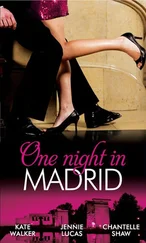Kate Atkinson - One Good Turn
Здесь есть возможность читать онлайн «Kate Atkinson - One Good Turn» весь текст электронной книги совершенно бесплатно (целиком полную версию без сокращений). В некоторых случаях можно слушать аудио, скачать через торрент в формате fb2 и присутствует краткое содержание. Жанр: Триллер, на английском языке. Описание произведения, (предисловие) а так же отзывы посетителей доступны на портале библиотеки ЛибКат.
- Название:One Good Turn
- Автор:
- Жанр:
- Год:неизвестен
- ISBN:нет данных
- Рейтинг книги:4 / 5. Голосов: 2
-
Избранное:Добавить в избранное
- Отзывы:
-
Ваша оценка:
- 80
- 1
- 2
- 3
- 4
- 5
One Good Turn: краткое содержание, описание и аннотация
Предлагаем к чтению аннотацию, описание, краткое содержание или предисловие (зависит от того, что написал сам автор книги «One Good Turn»). Если вы не нашли необходимую информацию о книге — напишите в комментариях, мы постараемся отыскать её.
One Good Turn — читать онлайн бесплатно полную книгу (весь текст) целиком
Ниже представлен текст книги, разбитый по страницам. Система сохранения места последней прочитанной страницы, позволяет с удобством читать онлайн бесплатно книгу «One Good Turn», без необходимости каждый раз заново искать на чём Вы остановились. Поставьте закладку, и сможете в любой момент перейти на страницу, на которой закончили чтение.
Интервал:
Закладка:
Martin had never given matryoshka much thought before, but here in St. Petersburg their ranks seemed omnipresent and un-avoidable. His fellow travelers on the tour, overnight connoisseurs of Russian folk art, chatted all the time about which kind they were going to buy to take home. They speculated about how much doll they were going to get for their ruble, and the general feeling was that the Russians were out to rip them off but that they would do everything they could to rip the Russians off in return. “They’ve embraced capitalism,” one man said, “so they can take the bloody consequences.” Martin couldn’t tell if “bloody” was being used as an expletive or merely a descriptive. Martin had noticed before on these kinds of trips that they tended to gener-ate a good deal of xenophobia, so that even when experiencing and enjoying the Wonders of Prague or the Beauties of Bordeaux, the tourists regarded the inhabitants of those places as hostile mis-creants, the tourists being little Britishers fighting a permanent rearguard action.
The shop in the foyer of their cockroach-infested hotel-hot, brightly lit, its walls mirrored with glass-sold dolls with inflated price tags attached. No one ever bought anything in the shop, and Martin spent an evening hour in there, browsing beneath the disappointed eye of the woman in charge ( “Just looking,” he mur-mured apologetically), studying, evaluating, and comparing dolls in readiness for the reality of a raw retail transaction out on the streets of St. Petersburg. There were big ones and small ones, tall ones and squat ones, but the features always seemed to be the same, little pouty rosebud mouths and big blue eyes, with eyelids fixed open in a permanent stare of sex-doll horror.
There were also dolls in the shape of cats, dogs, frogs, there were American presidents and Soviet leaders, there were five-doll sets and fifty-doll sets, there were cosmonauts and clowns, there were crudely made dolls and ones that had been exquisitely painted by real artists. By the time he left the hotel shop, Martin felt dizzy, his eyes swimming with endless reflections of dolls’ faces, and when he went to his narrow, uncomfortable bed, he dreamed he was being watched by a giant Masonic eye in the sky that turned into the eye painted at the bottom of his grandmother’s chamber pot, with its prurient inscription, WHAT I SEE I’LL NEVER TELL. He woke up in a sweat, he hadn’t thought about his grandmother-let alone her chamber pot-in years. She had been born in a Victorian century and had never really left it, her working-class Fountainbridge ten-ement a dark and gloomy space draped with chenille and musty velvet. She died a very long time ago, and Martin was surprised that he remembered anything about her at all.
“Going to take one of those dolls home for my little grand-niece,” the dying grocer said as they surveyed the rows of stalls. It was beginning to snow again, big wet flakes of early snow that melted on contact with tarmac and skin. It had snowed the day before, and now the streets were grim with gray slush. The air was hostile with a damp kind of cold, and the grocer decided to buy a fur hat with earflaps, haggling with the stallholder over the price. Martin wondered what the point of bargaining was when you were so near to death. He was beginning to wonder if the grocer really was dying or if he had simply made the claim in order to get attention.
Martin managed to give him the slip while he was entrenched in the negotiations over his hat. The man was ruining the Magic of Russia for Martin, that very morning he had trailed on Martin’s heels through the Hermitage, complaining all the way about the excesses of the decor (but surely that was the point) and imag-ining what “god-awful pig swill” they would be served up for supper. Even the Rembrandts didn’t shut him up. “Miserable old bugger, wasn’t he?” he said, contemplating a self-portrait of the artist. Martin knew it could be only a temporary respite, no doubt the minute he had his new hat on his head, the grocer would ferret him out from among the souvenir stalls and spend the rest of the afternoon complaining about being taken to the cleaners by the hat seller, a scrawny man who looked as if he were going to beat the grocer in the race to scramble through the door to the next world.
Martin intended to buy a set of dolls for his mother, he knew they would sit, dusted but neglected, on a shelf among her other cheap knickknacks, the porcelain “figurines,” the dolls in national costume, the little cross-stitched pictures. She took no pleasure in anything he bought her, but if he didn’t buy her something she would complain that he never thought about her (her logic was indefatigable). If someone had given Martin a piece of rock wrapped in paper, he would have been grateful because they had gone to the trouble of finding the rock and wrapping it in the paper, just for him.
He would buy her something ordinary, he decided, because she deserved nothing better than ordinary-a little peasant set, aprons and head scarves, he was holding one in his hand, feeling its smoothness, its fertility-symbol shape, thinking about his mother, when the girl at the stall said, “Is very nice.”
“Yes,” he said. He didn’t think it was nice at all. He tried not to look at the girl because she was so pretty. She was wearing finger-less woolen gloves and a scarf wrapped around her blond hair. She came out from behind the stall and started picking up different dolls, opening them up, cracking them like eggs, setting them out. “This one beautiful, this one also. Here this doll special, very good artist. Scenes from Pushkin, Pushkin famous Russian writer. You know him?” It was such a soft sell that it would have seemed discourteous to resist, and in the end, after perhaps more contemplation than either the task or the dolls merited, he bought an expensive fifteen-doll set. They were attractive things, their fat-bellied stomachs painted with “winter scenes” from Pushkin. Works of art, really, too good for his mother, and he decided he would keep them for himself.
“Very beautiful,” he said to the girl.
“No dollars?” she queried sadly when he handed over his fist-fuls of rubles.
She was wearing ankle boots with a high heel and an old-fashioned, serviceable kind of coat. All the girls in St. Petersburg wore high-heeled boots, picking their way dexterously through the icy slush while Martin found himself slipping and sliding like a slapstick comedian.
“You want coffee?” she asked unexpectedly, confounding him with the question. He thought she was going to produce a flask from somewhere, but she shouted something harsh at the man selling old Red Army insignia at the next stall, and he shouted something equally harsh back, and then she picked up her hand-bag and set off, swinging her bag and beckoning to Martin as if he were a child.
They didn’t have coffee. They had a bowl of borscht, followed by hot chocolate, thick and sweet, served in tall mugs, alongside some kind of custard pastry. She ordered it and wouldn’t let him pay, waving her hand at the thin plastic carrier bag that contained his newspaper-wrapped dolls, snugly inside of one another now, so he wondered if this was his reward for having forked out way over the odds for his purchase. Maybe this was how business was transacted in Russia, maybe if you gave someone enough money to live off for a week they took you into warm, steamy cafés and blew their cigarette smoke all over you. On holiday in Crete once (“Discover the Ancient Wonders of”), he found that every time he bought something in a shop, the shopkeeper insisted on giving him something else for free, as if they wanted to soften the harsh edges of capitalism. These gifts usually took the form of a crocheted doily so that Martin had quite a pile of them in his suit-case by the time he returned home. He gave them to an Oxfam shop.
Читать дальшеИнтервал:
Закладка:
Похожие книги на «One Good Turn»
Представляем Вашему вниманию похожие книги на «One Good Turn» списком для выбора. Мы отобрали схожую по названию и смыслу литературу в надежде предоставить читателям больше вариантов отыскать новые, интересные, ещё непрочитанные произведения.
Обсуждение, отзывы о книге «One Good Turn» и просто собственные мнения читателей. Оставьте ваши комментарии, напишите, что Вы думаете о произведении, его смысле или главных героях. Укажите что конкретно понравилось, а что нет, и почему Вы так считаете.
